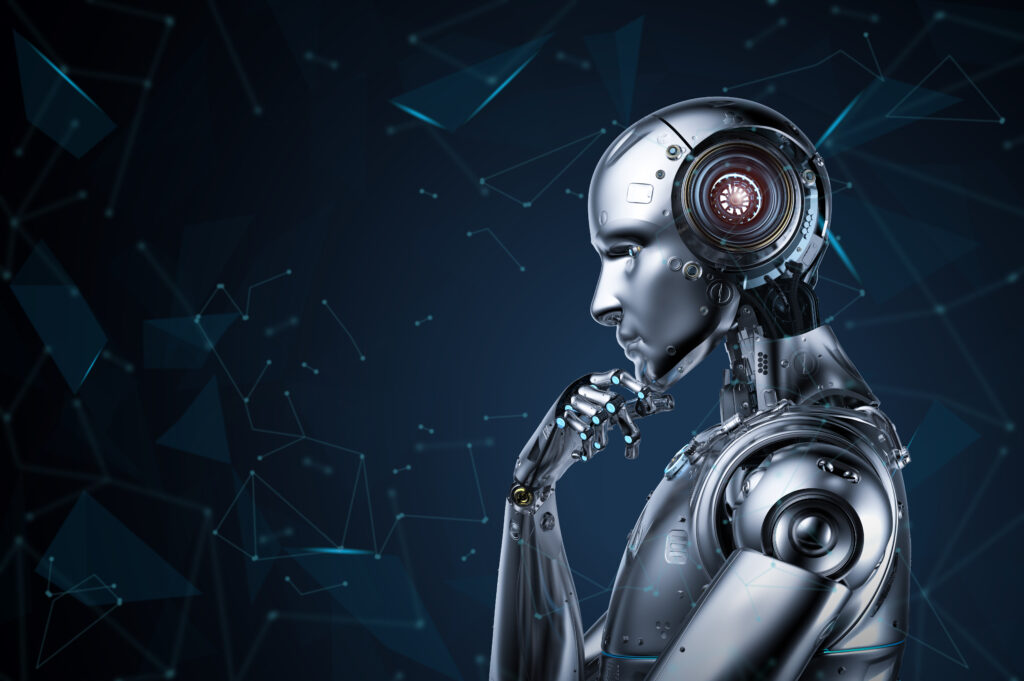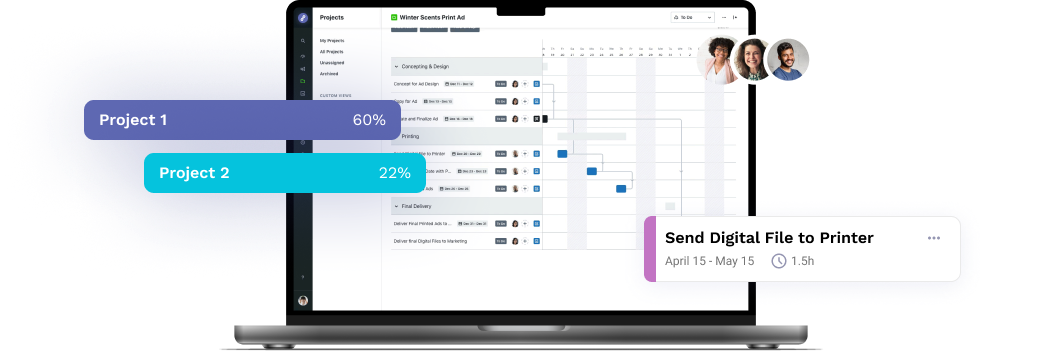
Artificial intelligence (AI) has been around for quite some time, but in 2022, some key advancements in the field gave rise to tools like ChatGPT, which propelled AI to the public’s attention. This pushed it to be a topic of conversation in education, business, politics, and many other spheres of influence and public discourse. In particular, AI creative concerns surrounded the role automation will play in designing new content.
In the context of creativity, the recent development of AI tools has prompted creative professionals to think the aim is to replicate human creativity. For now, AI still maintains an assisting role in the creative process. Described as technology’s latest effort to shoot for the creative stars, AI’s creative involvement will undoubtedly expand in the coming years.
The Concerns of Creatives About AI
According to a global study by Pfeiffer conducted in 2018, the majority of creatives back then voiced the same concerns about AI as they did in a new 2023 study conducted by the Engine Creative:
AI Concern #1: Homogenization of Creative Output
There is a growing perception that AI could have a leveling effect on creative output that will give way to an era of machine-generated mediocrity in visual production. To the untrained eye, this may make it challenging to differentiate between machine-generated content and the work of creative professionals. The concern lies in the potential for AI to standardize visual aesthetics, potentially diminishing the value of human creative expertise. Many professionals worry about relinquishing control over the creative aspects of their work and resist being dictated to by machines.
AI Concern #2: Experimentation Discouragement
Creatives’ second-most common concern regarding AI was its potential to drive human initiatives to be driven purely by the factors of profitability, easiness of predictability, and “safe” replication of previous successes. For creativity to advance and thrive, creative people need the permission and space to experiment and challenge themselves without the expectation of constant ROIs. One of the key aspects of creativity is enjoyment derived from free-will experimentation — with that taken away, creatives fear that the true essence of human creativity will disappear.
AI Concern #3: Privacy Transparency and Artistry Control
An issue expressed primarily by designers and writers is privacy and data handling. With the meteoric rise of data collection to improve tool functionality, creatives are worried about the vast amounts of data related to their work that companies like Adobe can gather. At its core, the concern relates to the writers’ and designers’ fear of their data being processed against their volition and in ways that they do not consent to that may result in their signature style, a.k.a. “creative identity,” being taken away from them and replicated by AI.
How Valid Are Creatives’ AI-Related Concerns?
The concerns raised by creatives about AI and its role in creativity hold varying degrees of validity. The first concern is grounded in that AI is often instructed to generate predictable content that has been demonstrated to “work.” This effectively means that industries that rely heavily on creativity are incentivized to do away with creative diversity. Similarly, the integration of AI may influence creative processes toward more formulaic outcomes.
Given the genuine concerns over data security and the potential misuse of personal and creative data, AI has the potential to replicate individual creators’ signature output. The validity of these concerns is contingent on how AI is employed and managed within the creative industry. This emphasizes the need for ethical guidelines and transparency in AI development.
What Steps Can You Take to Address the Concerns of Creatives Regarding AI?
1. AI Ethics Guidelines
Establish clear and widely accepted ethical guidelines on how to use AI, like those created by the European Commission. Guidelines should emphasize how important it is to maintain the uniqueness of human creativity and outline usage of AI in a way that makes it act as a tool rather than a replacement.
2. Human-AI Collaboration
Encourage collaboration between creatives and AI by demonstrating how it can be a valuable assistant in helping artists and designers explore new ideas, automate repetitive tasks, and boost productivity. The easiest path to alleviating concerns about AI replacing human creativity is to have those concerned play around and familiarize themselves with it.
3. AI Education
Offer training and educational programs to creatives to help them better understand AI and its capabilities. This can empower them to use AI tools effectively, maintain creative control, and make informed decisions about when and how to integrate AI into their work. Educational websites like Coursera offer a large number of courses.
4. Transparency Initiatives
AI developers should prioritize transparency in their tools; doing so has been proven by Deloitte to have a positive effect on overall innovation. Creators should have a clear understanding of how AI algorithms work, their limitations, and the extent to which they influence the creative process. Transparency can help build trust and confidence in AI tools.
5. Feedback Mechanism
Make sure that you meet your creatives where they’re at. Conduct surveys and approach your creatives in meaningful and thoughtful 1:1s to collect their frequent and honest feedback on how they are finding working with AI tools, what they think of them, and if they are comfortable with the new direction their work is taking.
Conclusion
As artificial intelligence continues to make significant strides in the creative domain, it is imperative to acknowledge and address the legitimate concerns expressed by creatives. The validity of these concerns underscores the need for a conscientious approach in integrating AI into the creative process. By fostering an environment that respects the essence of human creativity while harnessing the capabilities of AI as a supportive tool, the creative industry can strike a harmonious balance that propels innovation without compromising the integrity of individual expression.
Lytho helps you streamline your entire workflow and harmonize all brand collateral under a single, uniform platform. Feel free to reach out to us by scheduling a demo and learning how our creative solutions can boost the effectiveness of your creative projects. We look forward to speaking with you!
Do you want to give yourself and your creative team more room for creative stimulation by automating the boring stuff? Lytho helps you streamline your entire workflow and harmonize all brand collateral under a single, uniform platform. Feel free to reach out to us by scheduling a demo and learning how our creative solutions can boost the effectiveness of your creative projects. We look forward to speaking with you!

Ready to simplify your creative operations and start having a little fun at work again? Schedule time to talk with us.
Let us show you how Lytho’s Creative Operations Platform helps in-house creative and marketing teams do better work, ease the stakeholder experience, and stay on brand.
Schedule a Demo posted by
posted by